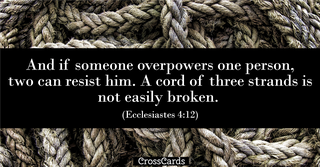
- Recent Translations
- All Translations
Prediger 4:13
Share
Settings
Images for Prediger 4:13

Prediger 4:13 Meaning and Commentary
Better [is] a poor and a wise child than an old and foolish
king
The wise man proceeds to show the vanity of worldly power and dignity, in the highest instance of it, which is kingly; and, in order to illustrate and exemplify this, he supposes, on the one hand, a person possessed of royal honour; who has long enjoyed it, is settled in his kingdom, and advanced in years; and who otherwise, for his gravity and dignity, would be venerable; but that he is foolish, a person of a mean genius and small capacity; has but little knowledge of government, or but little versed in the arts of it, though he has held the reins of it long in his hand; and, which is worst of all, is vicious and wicked: on the other hand, he supposes one that is in his tender years, not yet arrived to manhood; and so may be thought to be giddy and inexperienced, and therefore taken but little notice of; and especially being poor, becomes contemptible, as well as labours under the disadvantage of a poor education; his parents poor, and he not able to get books and masters to teach him knowledge; nor to travel abroad to see the world, and make his observations on men and things; and yet being wise, having a good genius, which he improves in the best manner he can, to his own profit, and to make himself useful in the world; and especially if he is wise and knowing in the best things, and fears God, and serves him; he is more happy, in his present state and circumstances, than the king before described is in his, and is fitter to take his place, and be a king, than he is; for though he is young, yet wise, and improving in knowledge, and willing to be advised and counselled by others, older and wiser than himself; he is much to be preferred to one that is old and foolish; who will no more be admonished;
or, "knows not to be admonished any more" F4: he neither knows how to give nor take advice; he is impatient of all counsel; cannot bear any admonition; is stubborn and self-willed, and resolved to take his own way. The Jews, in their Midrash, Jarchi, and others, interpret it, allegorically, of the good and evil imagination in men, the principle of grace, and the corruption of nature; the one is the new man, the other the old man; the new man is better than old Adam: the Targum applies it to Abraham and Nimrod; the former is the poor and wise child, that feared God, and worshipped him early; the latter, the old and foolish king, who was an idolater, and refused to be admonished of his idolatry; and so the Midrash.
F4 (dwe rhzhl edy al) "non novit moneri adhuc", Montanus; "nescit admoneri amplius", Junius & Tremellius, Piscator, Drusius, Rambachius.